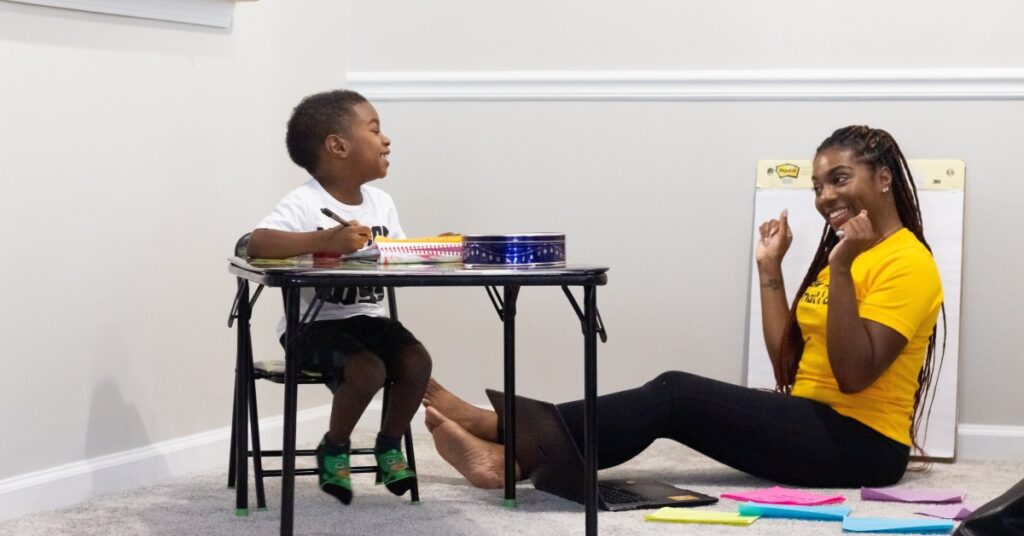
What Is a Master of Library and Information Science?
all LIS professionals must be information-literate. They can work in [...]

My education colleagues scoff at the credentials of special education advocates all the time. Some say, “You know, you don’t even need any special training to become an advocate.” Others will opine, “I could just quit my job as a teacher and become a special education advocate; that’s where the real money is.” These statements reflect a misunderstanding of the role that special education advocates play in the development of an Individualized Education Program (IEP).
Despite some peoples’ assumption that special education advocates and attorneys only exist to make life hard on educators and administrators in public schools, these advocates are necessary to ensure that school systems are held accountable to the regulations set forth in the Individuals with Disabilities Education Act (IDEA).
Recently, I spoke with Denise Marshall, Executive Director of the Council of Parent Attorneys and Advocates, one of the largest special education advocacy organizations in the United States. We discussed some common misconceptions about special education advocates.
Tim Villegas: Could you spend just a little bit of time explaining what COPAA is, and what your role is in the organization?
Denise Marshall: Sure. COPAA is a national nonprofit organization, and we protect the civil and legal rights of students with disabilities. We have a diverse membership. We have parents and family members, attorneys, advocates, related professionals, brothers, and sisters, grandmothers, and other family members.
We have one restriction on membership, and that is that educators cannot make more than 50 percent of their income from the school district directly. And the reason for that is that many of our members are in some level of dispute with the system, and we use our resources to talk with each other about strategy and about best practice and things like that. We were specifically designed for people who were on the parents’ side of the table, if there is a dispute over education.
Tim Villegas: Maybe you could clear something up for me. I’ve heard from a number of educators that you don’t have to have any training to be an advocate. I know that COPAA does offer training. Could you speak to that?
Denise Marshall: Yes. So that is true that there is no oversight body for special education advocates. And really the role has evolved, I would say, in the past 15 years, into one where more and more people have opened a business to provide advocacy support to families. And so in recognition of the need for those folks to have some level of training, we have instituted our Special Education Advocates Training, or SEAT, which has three different levels. The levels include novice, more advanced, and then the business of advocacy. We also have an advocate committee, which has developed over the last 10 or 12 years. Also, we have the advocate’s voluntary code of ethics which is listed on our website, and that code helps give guidance to people.
One of the reasons we haven’t really pushed as of yet for a regulatory body is that we’re very concerned that parents who have limited means or parents who don’t understand their rights may be prevented from bringing someone to the IEP table with them. Right now the IDEA has very broad rights for parents. It allows parents to bring anyone that has specialized knowledge of the child to the team meeting with them. And we feel it’s important to preserve that right, to make sure that as many parents as possible have somebody that they can depend on that understands their child. Also, federal and state law that can be very complicated.
Tim Villegas: Right. So having rules about advocates that are rigid might discourage a parent from reaching out and having somebody with them during a meeting.
Denise Marshall: Right. I’ve heard of many state level initiatives to introduce laws to regulate advocates and 99.9 percent of the time, those efforts come from someone at the state level of the state departments of education. I’ve not yet heard of it from parents themselves. People understand that they need to figure out who the advocate is, what their skill set is, interview them just like they would any other practitioner. And they do have some level of recourse, they can go to small claims court if they feel that the service provided wasn’t what they agreed to, or they can submit a claim to the Better Business Bureau or use online review tools like Yelp. Also, for another example, an attorney has to pass the state bar and have a license. And if someone feels that they’re not representing someone the way that they should, they can make a complaint to that bar and the bar will investigate it.
Tim Villegas: Is there anything else that you wanted to share about COPAA during this unprecedented global pandemic and resulting transition to remote learning?
Denise Marshall: Sure. COPAA’s priority is our children and families, and making sure that we can provide continuity and learning and equitable access and maintain rights. So in anything that’s proposed at the federal or state level, we’re encouraging our members and our colleagues to ask that question. Is there anything about this that is going to weaken a student’s rights or undo any of the gains they may have realized over the year? And if so, then you need to oppose it and think about how it can be implemented without weakening their rights or undoing their educational progress.
More information about COPAA’s special education advocacy training can be found on their website.
Questions or feedback? Email editor@noodle.com

all LIS professionals must be information-literate. They can work in [...]

Elective courses can customize your MLIS degree to a career [...]

Do you intend to work in your community's public library [...]

For decades now, libraries have been attuned to new developments [...]

A more diverse teacher workforce could provide a key to [...]
Categorized as: Special Education, Education & Teaching